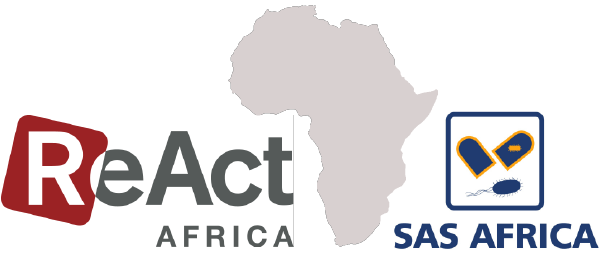After he spent fourteen (14) years in various levels of education before joining medical school in December 2020 still the term Antimicrobial Resistance was the new vocabulary,
In April 2021, he discovered an interesting post on Twitter that ReAct-Africa in collaboration with SAS Africa is recruiting tertiary students to equip them with the necessary knowledge and skill to understand and communicate Antimicrobial Resistance, that’s where its journey started.
After compressive lectures and discussions, he discovered that AMR is no longer a silent pandemic, Kagina define AMR as the nuclear bomb at the center of the universe, and that the nuclear bomb is ready to explode furthermore no single independent power can cool it however the combined effort, sacrifice and dedication can cool it.After graduation, He considered himself as the chosen ambassador that is responsible not only to pass the information but to be a reason that Antimicrobials regain their energy.
Due to his background in AMR awareness, Kagina discovered that among other interventions, the local community and students from the lower level of education should be equipped with knowledge in a way that they will understand.
In October 2021, He introduced a project named Tell them to tell them, a project aimed to equip the local community at Nyakahura rural ward and students at Nyakahura secondary school with AMU and AMR knowledge. Awareness sessions were accompanied by football competitions. Using pre and post-survey questionnaires, he concluded that it was a very productive project.
In commemorating world Antimicrobial Resistance week 2021, he joined his effort in increasing awareness among his fellow students and community through in-class talk and social media.
Due to his consistency, kagina won several competitions and presentation opportunities.He was a winner in the world photo and message competition organized by the British Society for Antimicrobial Chemotherapy(BSAC) in commemoration of world antimicrobial resistance awareness week 2021.
Kagina was a presenter at the first public health scientific conference organized at Muhimbili university of health and allied science, he is also expecting to present at the 10th MUHAS scientific conference scheduled 14th -15th of July 2022 on a theme of Antimicrobial resistance.
As a leader, kagina is now working with International Students One Health Alliance (ISOHA) as a continent representative (Africa), He is working as a communication manager with students one health innovation club (SOHIC), Tanzania. Kagina is also volunteering in One Health Society, a registered NGO working to increase awareness of various public health issues AMR being among them.
In his way kagina faced some difficulties’ especially due to his low experience in organizing community activities, he also faced difficulties in fixing time for AMR activities in a university timetable. Limited resources to facilitate AMR activities slow his ambitions to reach a large number of communities.
His tiredness efforts become the solver of all challenges, to him challenges make his mind more creative in finding the alternative solution. Despite that, he has a fixed university time table still makes time to participate in various AMR activities.
Through his experience, kagina recommends that only sacrifice, determination, and combined ambitions can shut down AMR. In one sentence kagina summarizes the key lessons he learned that Community needs our energy.
Effectively participating in various AMR activities built his confidence, communication skills, writing skills as well project organizing skills. As a leader kagina gained maximum leadership skills.
Kagina is now working to utilize emerging technologies such as artificial intelligence, big data, and mobile apps to rapidly share AMR information.
With his group, they introduced a project titled #The smart food, which aimed to reduce the use of antimicrobials in all agri-food value chains. The smart food project uses a WhatsApp chatbot (a form of artificial intelligence) to provide necessary knowledge and skills regarding AMU and AMR as well as to accelerate behavior changes through automated WhatsApp remainder messages.
Kagina is seeking, professional mentorship, advice, and Monetary funds from individuals, private sectors, companies, government, and other stakeholders interested in curbing AMR to strengthen his efforts.
Kagina insisted that we will never get another opportunity to stop AMR if we can’t react effectively now. Youth is the key reactant toward archiving our goal. He also advises other students to join AMRLEP whenever they have a chance to build their knowledge, skills, and confidence.
Gallery while engaging in AMR











LINKS SUPPORTING AMR ACTIVITIES
Polikalipo Kagina describes the #Tell them to tell them project, which evaluated social and economic factors involved in AMR knowledge and antibiotic behaviors in a rural Tanzanian community.
CIDRAP Antimicrobial Stewardship Project Newsletter – Jan 20, 2022 (umn.edu)
He is also active on Twitter through (4) polikalipo kagina (@PolycarpFaith1) / Twitter


